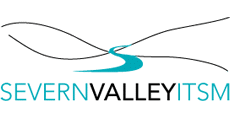What is ITIL®?
Since 1989, and over 180 countries, the ITIL® framework has been the worlds most widely accepted approach to IT Service Management. ITIL® takes best practice from international organisations operating in both private and public sectors.
IT Service Management (ITSM) derives enormous benefits from a best practice approach. Because ITSM is driven both by technology and the huge range of organizational environments in which it operates, it is in a state of constant evolution. Good practice, based on expert advice and input from ITIL® users is both current and practical, combining the latest thinking with sound, common sense guidance.
The latest version of ITIL® (V4) continues to enable all IT service providers to take a process driven and professional approach to the delivery and support of IT services.
It is the go-to IT qualification for professionals looking to realise their full potential, take a career leap, and deliver empowering change for ambitious organizations.
ITIL® provides organizations with a comprehensive framework for ITSM, and has lead the ITSM industry with guidance, training and certification for over 30 years. ITIL® 4 builds on this guidance by reshaping established ITSM practices in the wider context of customer experience, value streams, digital transformation, and systems thinking, as well as embracing new ways of working such as Lean, Agile and DevOps.
ITIL® 4 will help organizations navigate the new technological era, commonly known as the Fourth Industrial Revolution, marked by emerging technologies including: artificial intelligence, the internet of things, nanotechnology and much more.
The purpose of ITIL® 4 is to provide organizations with a practical and flexible framework that supports them on their journey into the new world of digital transformation by helping them align their human, digital and physical resources to compete in a modern and complex landscape.
To support the ITIL® framework, there is a comprehensive qualifications scheme catering for everybody’s needs.
